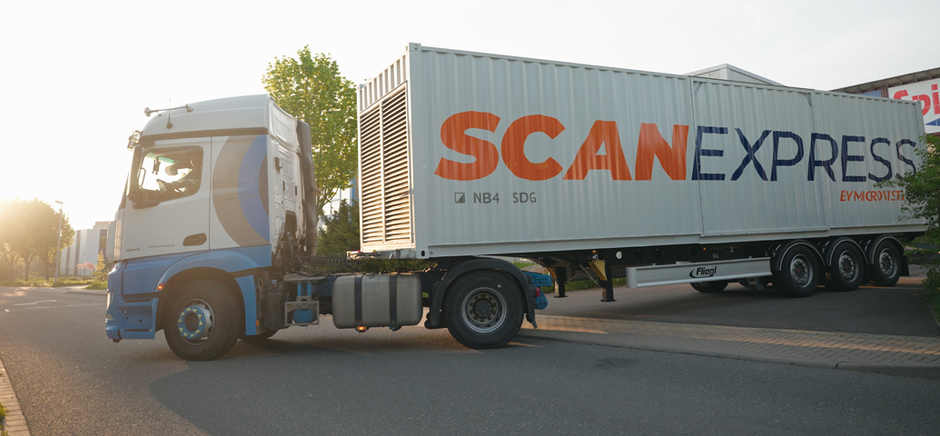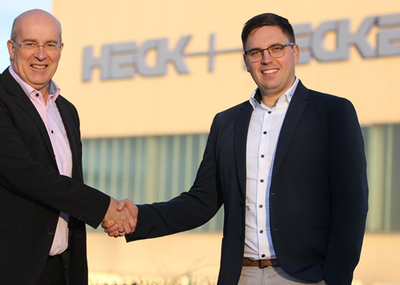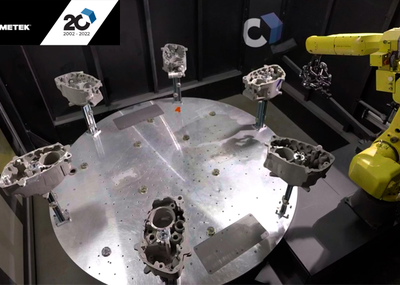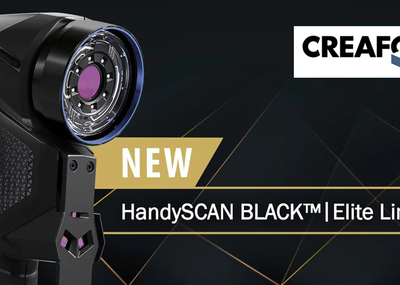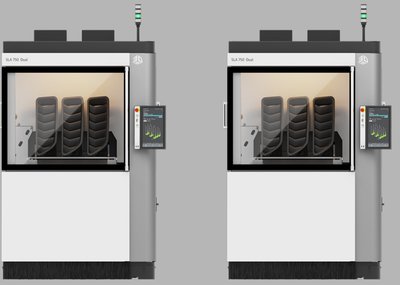The ScanExpress is a mobile inspection truck for foundries that offers fully automated inspection, evaluation, plug-and-play installation, and customisable CT setup for rapid deployment. The inspection system is capable of performing all typical inspection tasks such as structural analysis (pores and discontinuities), determining the shape and position of the internal geometry, measuring wall thicknesses and other individual values, as well as testing the bonding of different materials (e.g., steel or aluminium). Furthermore, testing for chips, core residues, and burrs, as well as an assembly check, are possible.
Rapid feedback on product properties
The inspection of the components is carried out on the basis of different value-added points, directly after the casting or the first machining. The big advantage of ScanExpress is the fast feedback on product attributes. "SMEs usually do not have a test foundry, and the timeframe is limited to test or to optimise their castings. However, the optimisation steps can be better determined if the feedback comes immediately after the casting. And this is exactly what makes ScanExpress so efficient," states Prof. Dr.-Ing. Lutz Hagner, who played a major role in the development of ScanExpress.
When ScanExpress is used
ScanExpress is used when a quick inspection is required to meet quality standards or to minimise other problems in the production process. In the transition to large-scale production, quality changes in the raw material and the influence of man and machine lead to unexpected defects. This, in turn, can mean high scrap rates at the time of SOP (Start of Production). “At that moment when the start date is fixed, the foundry has to deliver directly, no matter how high the scrap rate is", Hagner states. A classical problem, according to Hagner, is porosity in sealing surfaces. This type of scrap occurs when the sealing surface is mechanically machined; for this type of defect, a visual inspection after casting is of no use at all. Consequently, "lost production" occurs, which is associated with high costs. If the scrap rate is 25 percent or more, Hagner therefore recommends using ScanExpress to inspect the parts ; because it is simply fast, reliable and affordable.
The advantages of ScanExpress at one sight:
- CT inspection in a mobile 40. foot high cube container
(inspection truck comes directly to the foundry)
- Fast self-inspection of components by the company's own staff
(external personnel required for inspection)
- Autonomous system: one power connection is sufficient (400V/63A)
- Simple operation: no special knowledge required
- Adapted, automatic evaluation, suitable for the test task
- Different, demand-oriented price models: pay per use & flat rate option
- High security standard due to confidentiality
- Encrypted data processing, no integration into local networks required
- Conformity to ISO 27001
- Two pricing models: Pay per Use or Flat Rate Option
(More about the price models in the next article.)
Source: www.microvista.de

